Jharkhand is one of the states with highest number of malnourished
children in India. With about 13 million people out of a population of
33 million living below the poverty line in the state, tackling
malnutrition is a serious challenge. This multi-dimensional issue needs
multi-sectoral approach involving multi stakeholder at various levels.
Welthungerhilfe together with our partners are constantly working towards sustainably tackling the high numbers of malnutrition and address long-term prevention from nutrition insecurity. In this photo story, we bring glimpses from the three districts of Deoghar, Giridih and East Singhbhum were we are actively working. In all the three locations, 65 nutrition camps have been organised between July to Oct 2019. These nutrition camps last for 15 days and are attended by mothers and families with malnourished children. Their purpose is to get the malnourished children back to a stable nutrition and teach the mothers how this can be done. In advance of the camps, the children in the project areas get screened and malnourished or undernourished children are identified. During the camps, the mother is taught in how to prepare healthy and nutritious food, they get cooking recipes, awareness in safe drinking water, sanitation and hygiene is build, get consulted on kangaroo care, timely immunization as well as infant and young child feeding. Additionally, the mothers learn how to prepare nutrition mix with locally available ingredients. Usually 15 children and 15 mothers on an average participate at one camp.

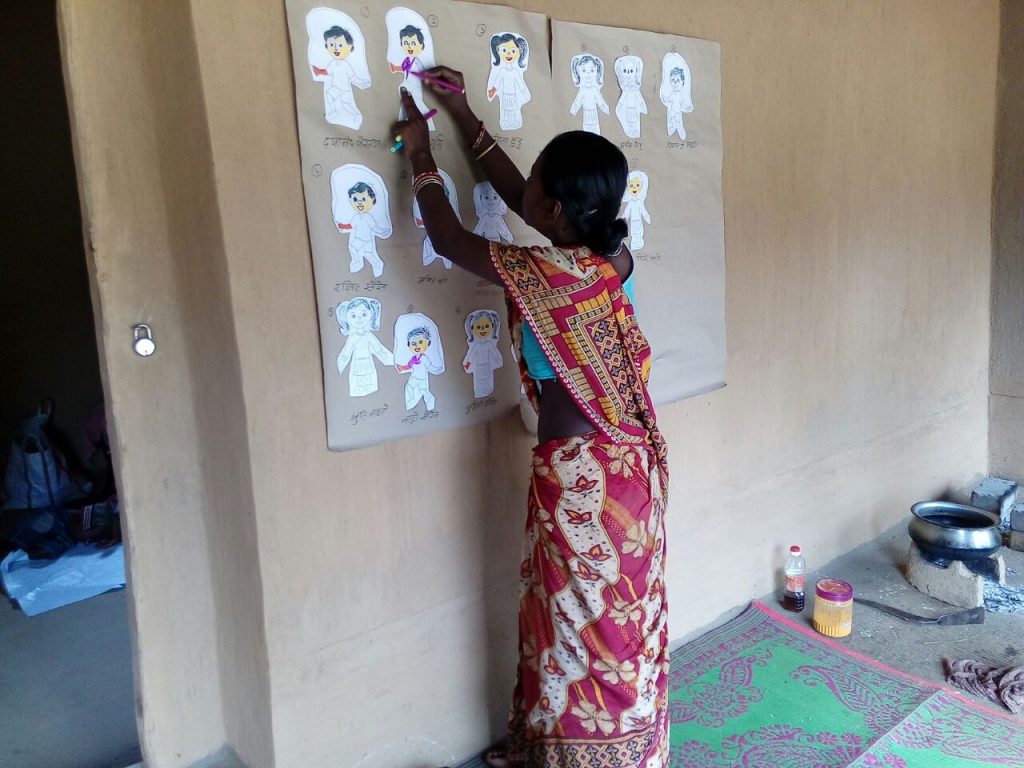
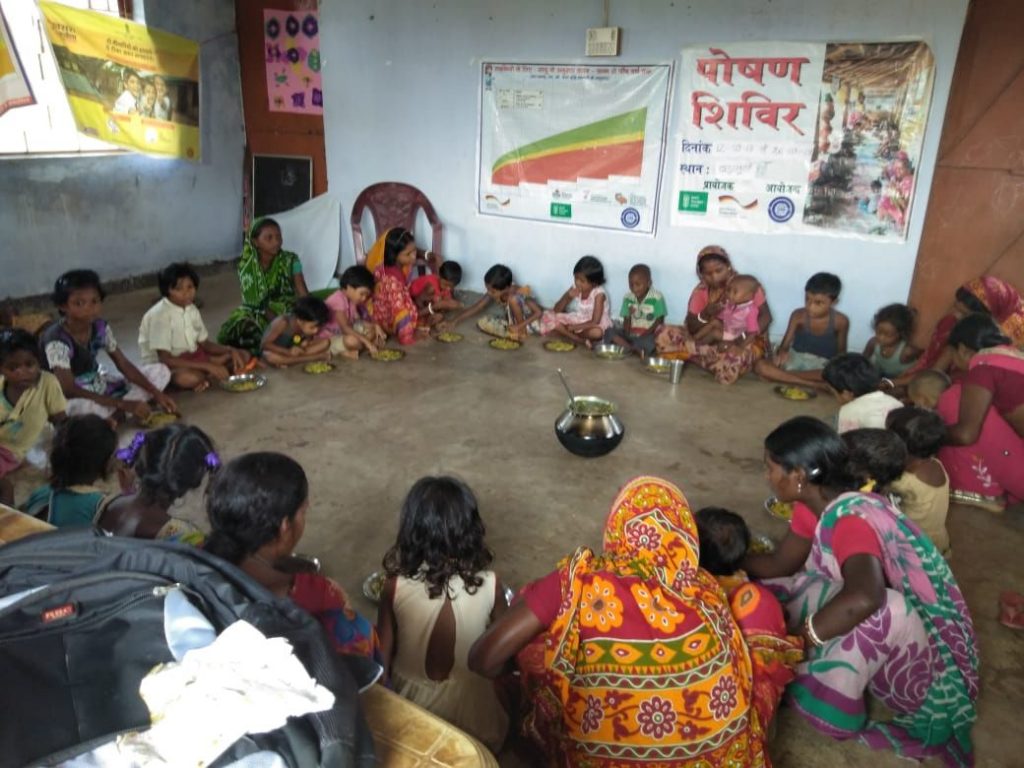
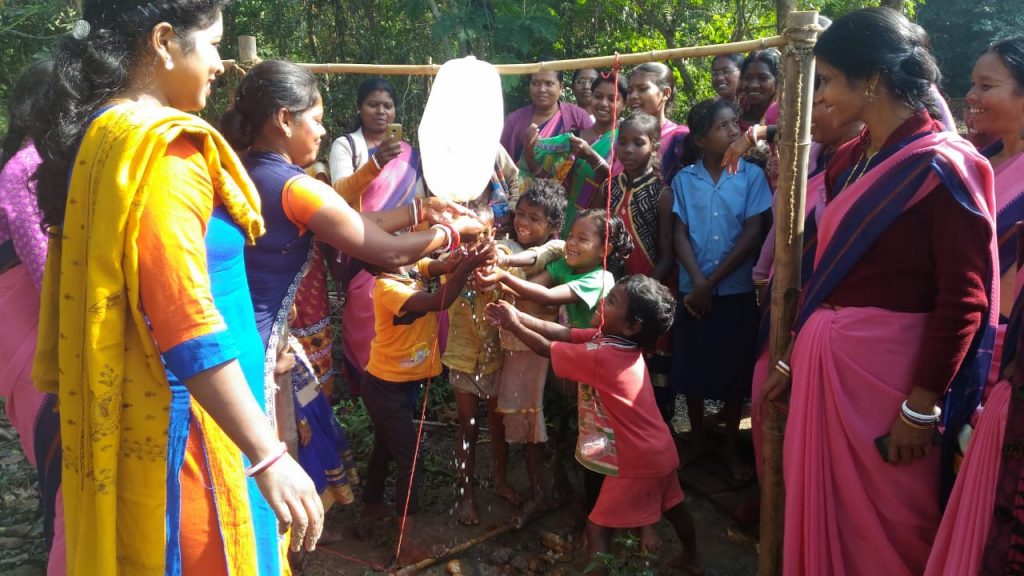
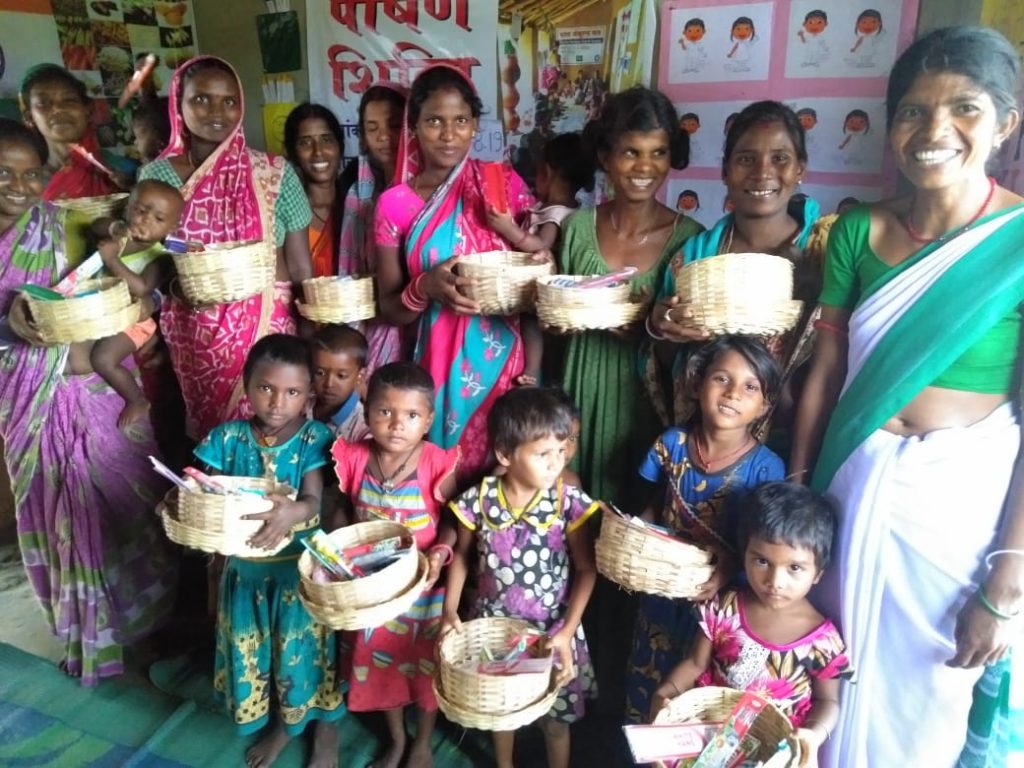
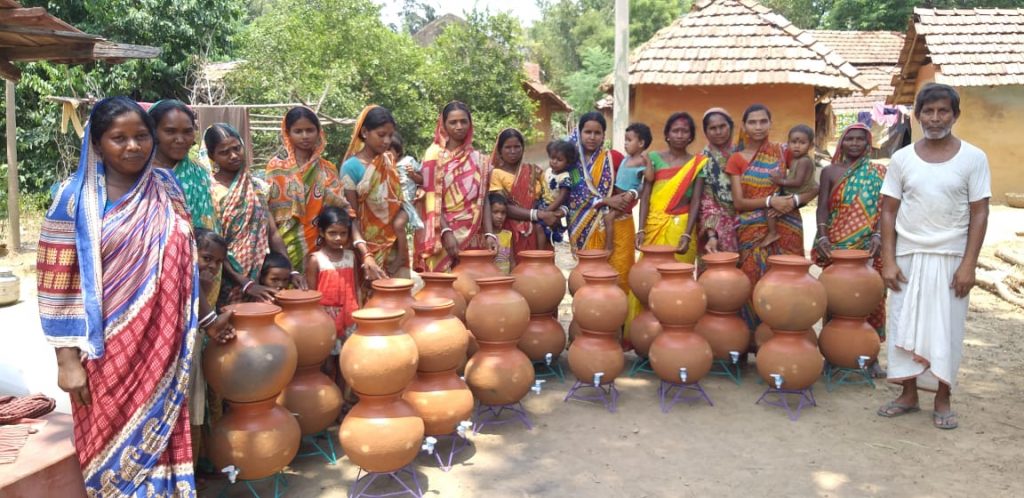
Nutrition gardens and nutrition sensitive integrated farming systems (NSIFS) are another crucial component. These initiatives ensure a way to attain long-term nutrition security for households, and also increase income. Nutrition gardens become part of the households where a variety of crops are grown to support the daily diet of a household. Under the project, our partners Abhivyaktyi Foundation, Pravah and Center for World Solidarity supported in initiating 1527 nutrition gardens. They have been providing technical guidance, seeds and other garden inputs to the families. NSIFS on the other hand is an approach that looks at the farm as a miniature biodiverse ‘ecosystem’. By growing varied crops and combining them with other flora and fauna as well as animals the crop production will become diverse and each element will support each other. This method will help farmers to grow more diverse crops that eventually will lead to a more varied and rich harvest and the surplus can be sold on the market. Currently, 325 farmers are developing NSIFS models and these families are able to improve their agricultural practices and now have more diversity regarding their crops as well as their dietThe following pictures will give you an insight on the different project components that contribute to a healthy, nutrition secure lifestyle in the rural project areas in Deoghar, Giridih and East Singhbum.




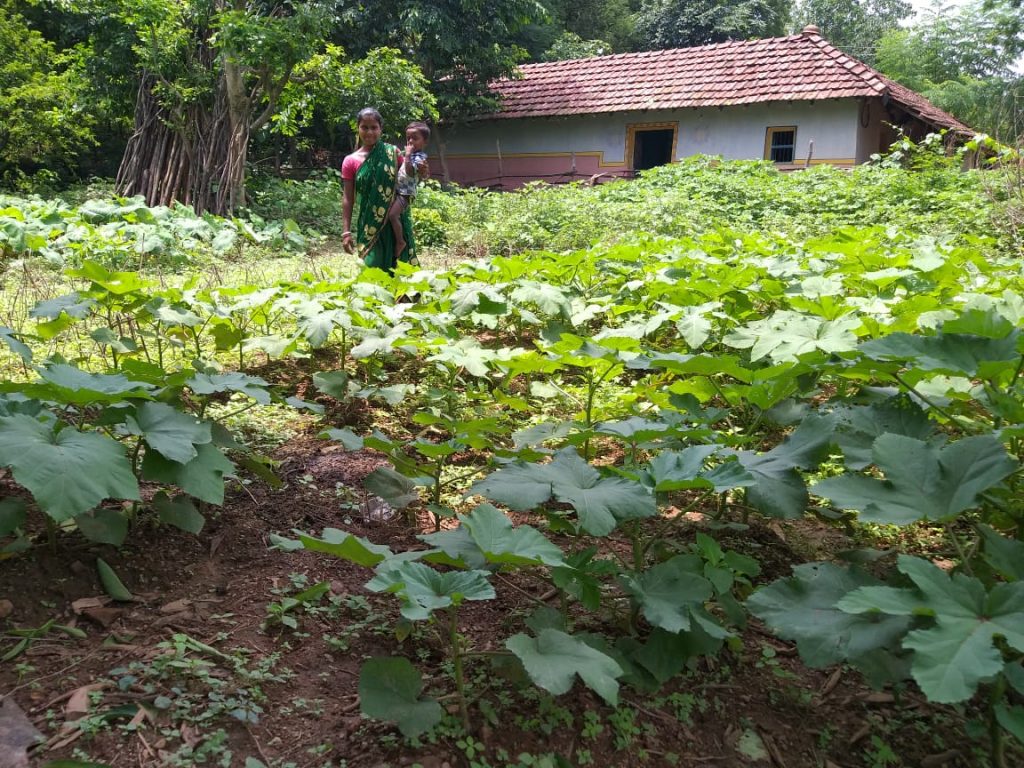

The project keeps rolling: in the upcoming 6 months another 50 nutrition camps are planned and more nutrition gardens and NSIFS will be established. In the past these initiatives have proven to fight malnutrition effectively.



